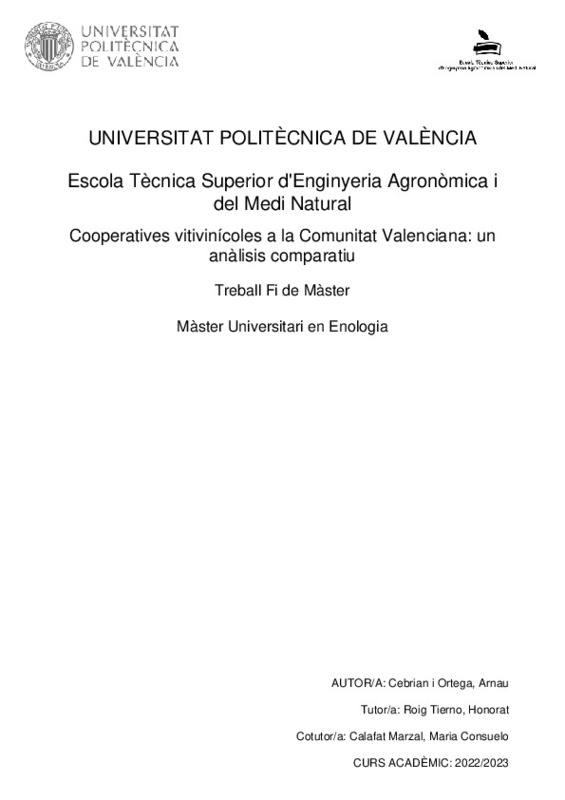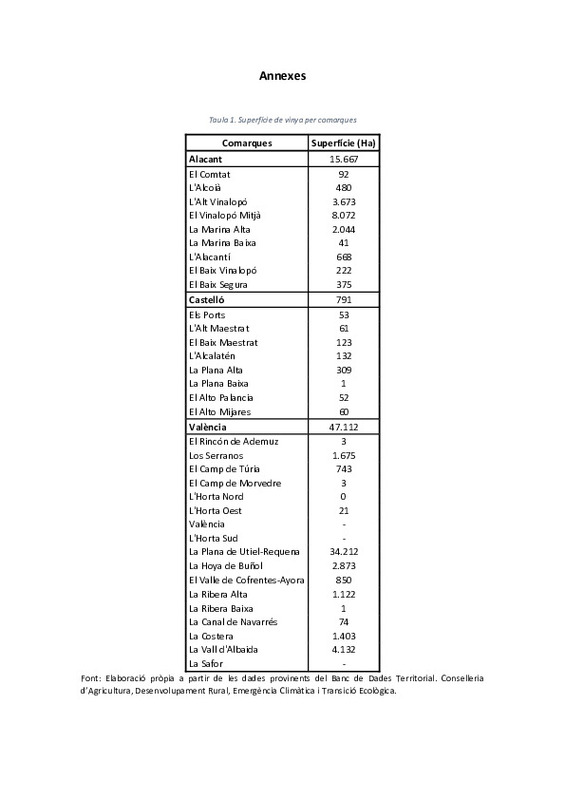JavaScript is disabled for your browser. Some features of this site may not work without it.
Buscar en RiuNet
Listar
Mi cuenta
Estadísticas
Ayuda RiuNet
Admin. UPV
Cooperatives vitivinícoles a la Comunitat Valenciana: un anàlisis comparatiu
Mostrar el registro completo del ítem
Cebrian I Ortega, A. (2023). Cooperatives vitivinícoles a la Comunitat Valenciana: un anàlisis comparatiu. Universitat Politècnica de València. http://hdl.handle.net/10251/197313
Por favor, use este identificador para citar o enlazar este ítem: http://hdl.handle.net/10251/197313
Ficheros en el ítem
Metadatos del ítem
| Título: | Cooperatives vitivinícoles a la Comunitat Valenciana: un anàlisis comparatiu | |||
| Otro titulo: |
|
|||
| Autor: | Cebrian i Ortega, Arnau | |||
| Director(es): | ||||
| Entidad UPV: |
|
|||
| Fecha acto/lectura: |
|
|||
| Resumen: |
[ES] Les cooperatives vitivinícoles en la Comunitat Valenciana són entitats amb una amplia base social. Des de la seua introducció, s¿han caracteritzat per ser importants generadores d¿activitat capaces de contribuir en ...[+]
[EN] Wine cooperatives in the Valencian Community are entities with a broad social base. Since their
introduction, they have been characterized as important generators of activity capable of
contributing to the sustainable ...[+]
|
|||
| Palabras clave: |
|
|||
| Derechos de uso: | Reserva de todos los derechos | |||
| Editorial: |
|
|||
| Titulación: |
|
|||
| Tipo: |
|
recommendations
Este ítem aparece en la(s) siguiente(s) colección(ones)
-
ETSIAMN - Trabajos académicos [3555]
Escuela Técnica Superior de Ingeniería Agronómica y del Medio Natural








